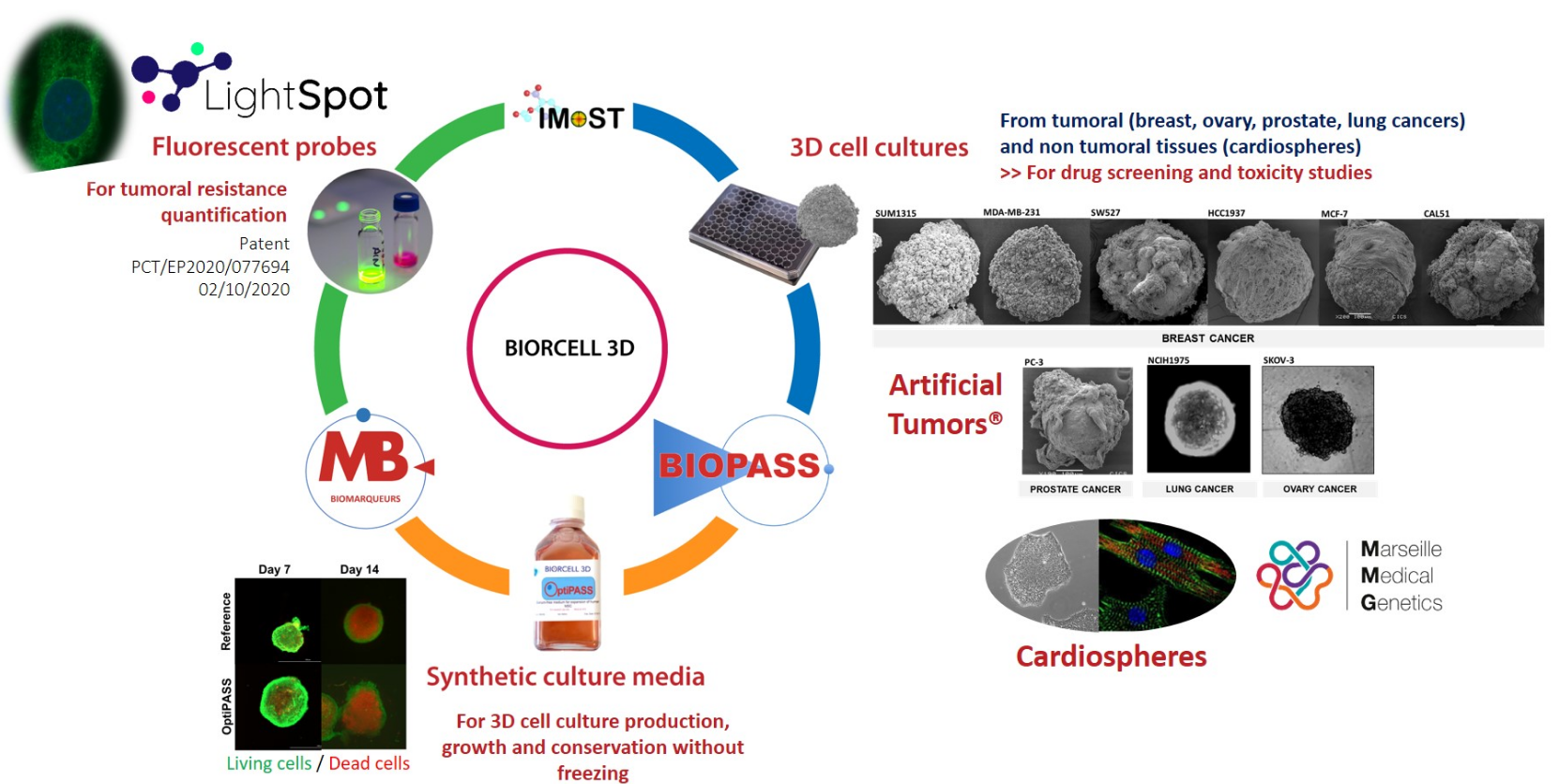You are here : enResearchResearch activites by tumor sitesBreast
- PDF version
-
Translations
IMoST - Artificial Tumors® & fluorescent biotracers: preclinical tools for the screening of tumoral drug resistance.
BIORCELL 3D® consortium develops innovative biotechnological tools such as spheroid models and fluorescent biotracers intended to evaluate treatment efficacy and/or tumoral drug resistance

Summary scheme of the main research projects led by BIORCELL3D® Consortium.
The BIORCELL3D® consortium (https://biorcell-3d.com/) is a public / private Research & Development partnership which develops innovative biotechnology tools applied to Cancerology. Since 2016, the consortium has federated around fifteen researchers from the UMR INSERM/UCA 1240 IMoST, and from BIOPASS and BIOMARQUEURS companies.
From fundamental research to finalized research, the BIORCELL3D® consortium develops innovative biotechnology tools of interest in Health, and particularly for the treatment’s optimization in Oncology.
Through cellular engineering approaches, the consortium develops three-dimensional cell culture models derived from cancer cell lines, also called Artificial Tumors®. These models were mostly developed for cancers subtypes associated with a poor prognosis such as Triple-Negative breast cancers, but also for ovarian, prostate, and pulmonary cancers. These highly reproducible avascular micro-tumor models closely mimic the in vivo conditions and allow to study the efficacy of different treatment strategies in a more predictive approach than monolayer cell cultures. The team also develops, in collaboration with the UMR INSERM S910 of La Timone in Marseille, cardiac micro-tissues (or organoids) from iPS cell-derived cardiomyocytes, in order to carry out studies on the chemotherapeutic agents-induced cardiotoxicity.
In order to promote the growth and maintenance of these models, the artificial tumors® are developed in synthetic serum-free culture media (OptiPASS® media range) with component formulations specifically adapted and controlled by BIOPASS company. These media also allow the preservation of multicellular biological samples over several days without freezing.
Otherwise, through pharmacomodulation approaches to synthesize molecules of interest, our group develops fluorescent tracers used as preclinical diagnostic tools detectable by fluorescence imaging. Particularly, in order to improve cancer treatment and limit therapeutic failure associated to tumour cell resistance, our group recently developed new classes of innovative fluorescent tracers, called LightSpot® [Patent PCT / EP2020 / 077694 02/10/2020].
All these innovations are directly transferred to partner companies whose objective is to industrialize and propose finished products and services intended to fundamental research and screening laboratories or to Comprehensive Cancer Centers (CCCs).
Since 2016, this public/private partnership has already generated more than 13 jobs, especially for professionals issued from Clermont Auvergne University, fulfilling the adage “from training to employment”.
Other partners within the GCCA
- Jean PERRIN Comprehensive Cancer Center




